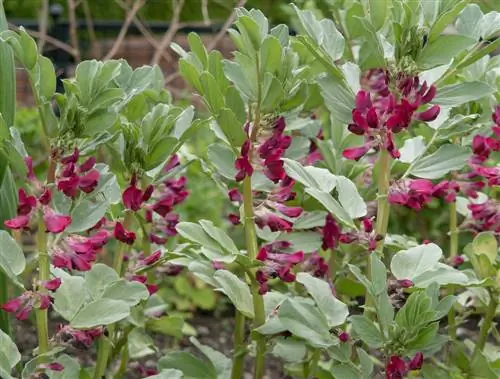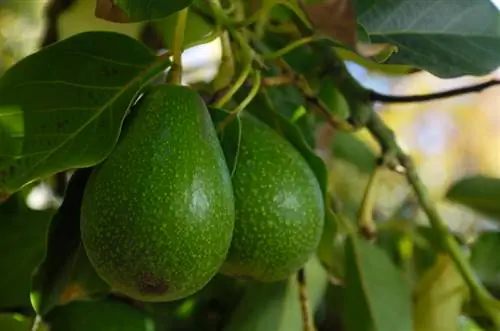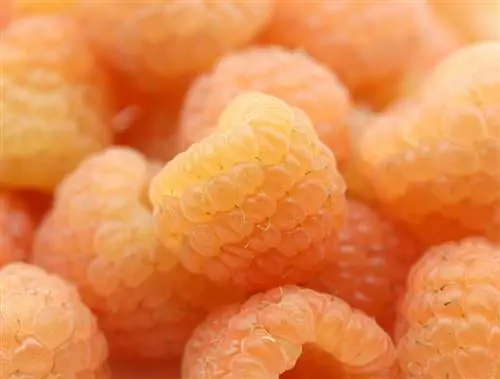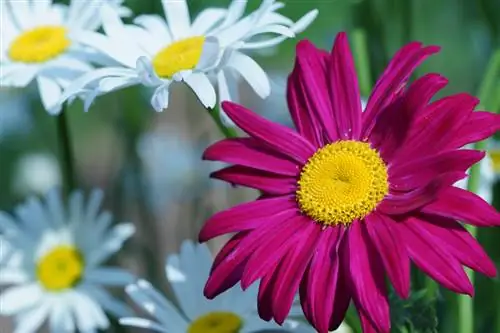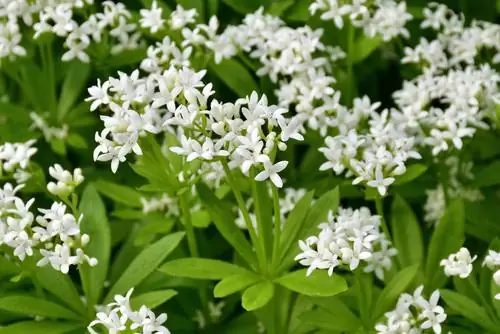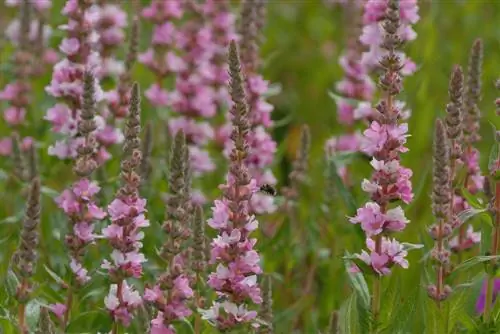- Author admin leonars@hobbygardeners.com.
- Public 2023-12-16 16:46.
- Last modified 2025-01-23 11:21.
There are countless varieties of broad beans. All are cultivars of an original plant that probably no longer exists today. The individual species differ not only in the size and color of their seeds but also in their growth habit, height, flower color and harvest time. Below we will introduce you to the most important broad bean varieties.
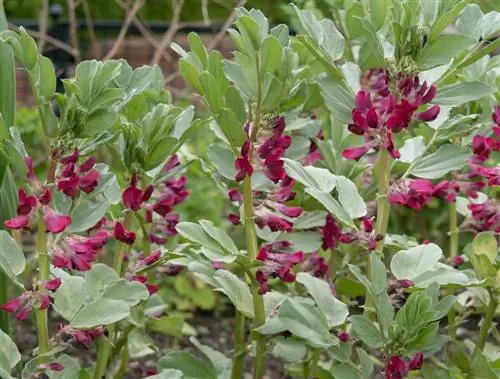
What types of broad beans are there?
The most important varieties of broad beans are Aquadulce, Bad S alty, Triple White, Eleonora, Early White Germ, Groot Beans, Hangdown, Karmesin, Osnabrücker Markt and Ratio. There are differences in bean and flower color, height of growth and growing season.
The synonyms of the broad bean
Broad bean, broad bean or broad bean: what's the difference? There is no. The broad bean, botanically Vicia faba, is known by many different names. These include:
- broadbean
- Faba bean
- Broad Bean
- Fava bean
- Faberbohne
- Big Bean
- Pork Bean
- cattle bean
- Horse Bean
Characteristics of the faba bean
The broad bean not only has many names, it also comes in many different varieties that differ in flower color, height, bean color and taste. All types of broad beans have in common:
- belong to the vetch family
- have taproots and thus loosen the soil
- Due to their frost hardiness, they can be sown and harvested early and are therefore suitable as a previous crop
- They can be processed young as vegetables or dried and stored for a long time
- Most varieties do not grow higher than 1.50m and do not require climbing assistance
The ingredients of broad beans
Broad beans are he althy - regardless of the variety. Broad beans are particularly rich in minerals and are an important source of protein for vegetarians. One cup of broad beans (170g) contains 13 grams of protein and covers 40% of the daily requirement for folic acid, 22% copper and 18% of the magnesium requirement. They contain hardly any fat, but 18g of carbohydrates per 100g. These nutrients (per 100g) make them an ideal side dish:
- Sodium: 25 mg
- Potassium: 332 mg
- Protein: 8 g
- Vitamin A: 333 IU
- Vitamin C: 3.7 mg
- Calcium: 37 mg
- Iron: 1.6 mg
- Magnesium: 33 mg
The types of beans briefly introduced
| Bean variety | Bean color | Flower color | Growth height | Vegetation season | Other features |
|---|---|---|---|---|---|
| Aquadulce | Green, reddish brown when ripe | White | Xxx | Mid-early | Strong growing |
| Bad S alty | Brownish | White-pink with black spots | Medium High | Leaves can be used for salads | |
| Triple White | Green | Pure white | Old, strong variety | ||
| Eleonora | Green | White with black spots | Short stature | Stable, very productive | |
| Early White Germs | White | White-black | Medium High | Early variety | Robust, productive |
| Groot beans | White | White-black | Late variety | From East Frisia | |
| Hangdown | Green | White-black spotted | Up to 2m | Mid-late | Long, hanging sleeves |
| crimson | Green | Bright red | Short stature | Very easy to care for | |
| Osnabrück Market | Light green grain, later beige | Mid-early | Long, hanging sleeves | ||
| Ratio | Green | Low growing | Very early variety |

